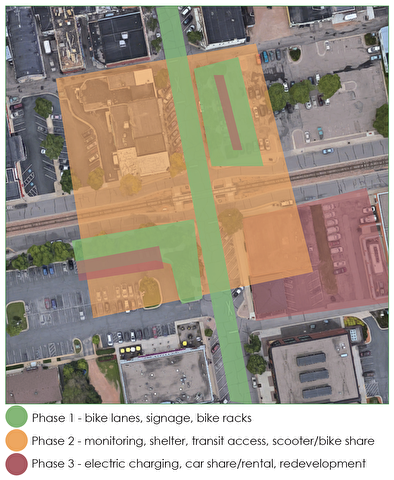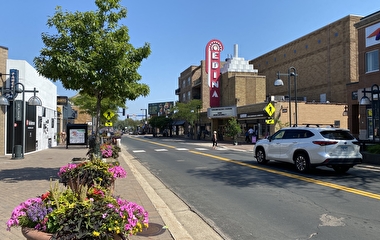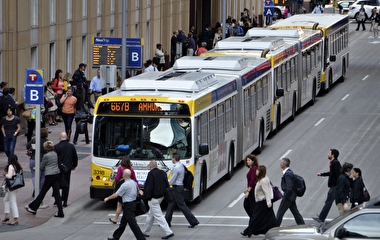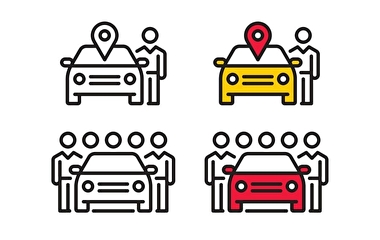The way Americans travel is undergoing a shift, and the way communities are laid out may have to shift as well. Student researchers from the U of M looked into shared mobility hubs as a way of updating transit within suburban areas.
As part of a land-use planning course with Assistant Professor Fernando Burga and later in connection to the Resilient Communities Project (RCP), students Raymond Eliot, Christina Hong, and Mathias Hughey partnered with officials from Scott County to plan a shared mobility hub in one of the county’s suburban areas.
Shared mobility hubs combine access to a variety of transportation modes, associated amenities, and place-making strategies to improve system access. They are typically designed and implemented in urban areas, but the city of Shakopee—because of its unique business and entertainment factors—wanted to see how it could benefit from this concept as autonomous vehicles and other societal changes make owning a vehicle less likely in the future.
RCP, housed within the U’s Center for Urban and Regional Affairs, connects local government agencies with students and faculty to advance community resilience and student learning. Scott County was one of RCP’s community partners for the 2019–2020 school year.
“We’re living in a very different reality where it turns out single-occupancy vehicles and the amount of space they use up on the road [are] just not sustainable,” Eliot says. He notes that environmental concerns and the cost of owning a car are putting increasing pressure on people to find alternative modes of transportation.
The focal point of the project was a bus station in Shakopee called the Marschall Road Transit Station. The station has much latent potential: It’s close to Interstate 169 and surrounded by commercial activity, entertainment options, and potential employment; Scott County itself functions as a transition between urban and rural communities. However, the station poses challenges as well: It’s surrounded by hot, uninviting parking lots and wedged between three high-traffic thoroughfares, with few sidewalks connecting pedestrians to the station.
“We are trying to retrofit something that was created based on a car model,” says Alan Herrmann, SmartLink mobility management supervisor for Scott County and the students’ main contact for the project.
The students recommended a shift toward active mobility in the station area to help close the first/last-mile gap and reduce the need for single-occupancy vehicles. Changes could include bike lanes, bike racks, more sidewalks, and better road crossings. Herrmann also urged an increased focus on community and social value at the station through features such as more green space, art installations, and entertainment facilities.
“It’s basically about engaging,” Herrmann says. “You want every generation to be engaged in that concept to make it grow.”
The students offered recommendations that could be implemented gradually and at low cost. In the beginning stages, they proposed small changes such as bike racks and increased shade. As the county schedules regular repairs and maintenance on the surrounding roads, bike lanes and sidewalks could be added at minimal extra cost and effort to the county.
After re-evaluating what does and doesn’t work, the county could then look to the bigger, more involved recommendations that the students offered, such as adding vendors to the bottom floor of the Marschall Transit Station or installing electric vehicle charging stations. Ultimately, the county could work toward major changes such as reducing the number of lanes on the surrounding roads and phasing out the nearby sprawl of car dealerships in favor of high-density, transit-oriented development.
“What we need to do is look at ways that we can address our current infrastructure shortfallings,” Eliot says, “and find creative ways to make them work while we build up better, more sustainable systems.
Writer: Sophie Koch



